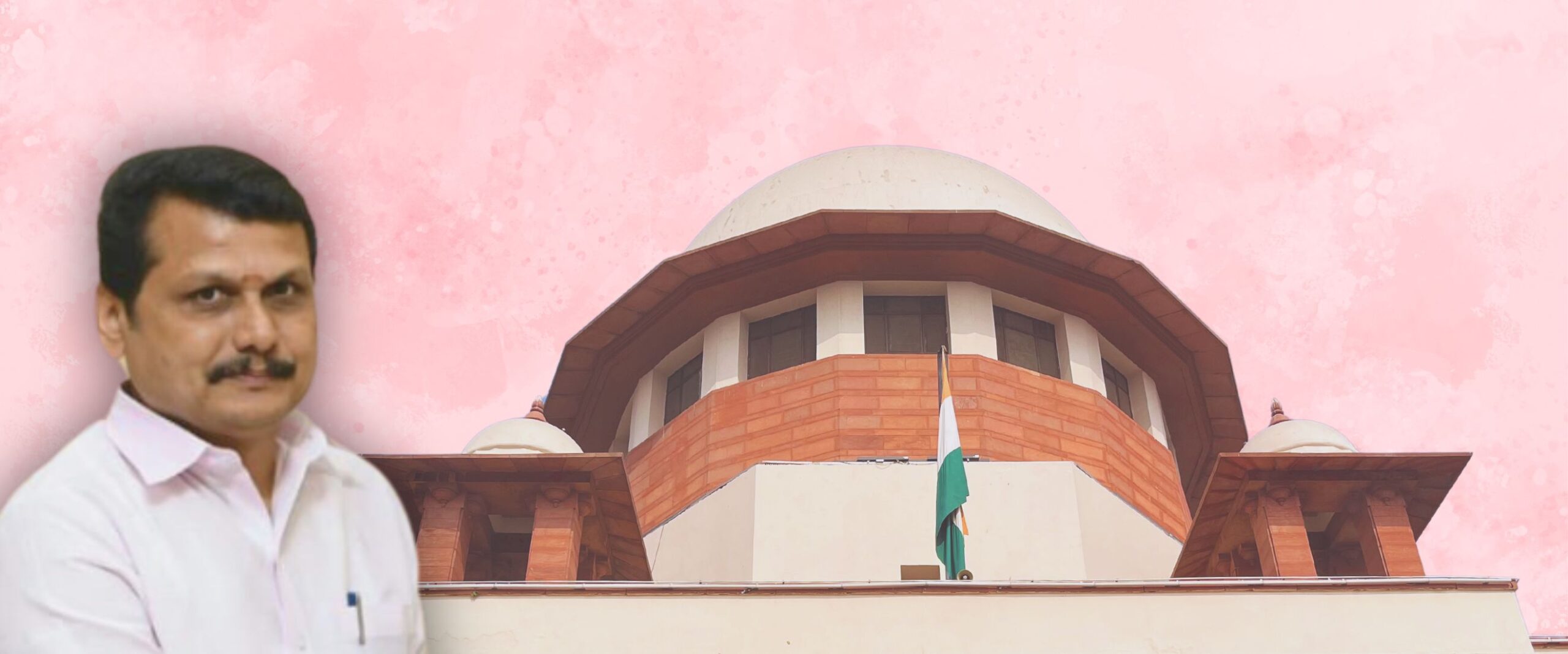Analysis
Supreme Court dismisses plea seeking cancellation of Senthil Balaji’s bail
The DMK leader resigned from his ministerial post to remain on bail, a day before the hearing in the top court

Seven months after the Supreme Court granted bail to DMK Minister Senthil Balaji, on 20 April, it dismissed a plea seeking cancellation of his bail. Balaji faced a tough choice: either stay a Minister and lose his bail, or give up his post and keep his bail as an ordinary citizen. Balaji chose the latter and resigned one day before, on 27 April.
The petition seeking the cancellation of his bail was filed after Balaji was reinstated to the Tamil Nadu cabinet, two days after securing bail in September last year. The petitioner was concerned that this move would put Balaji in a position to influence witnesses.
Balaji is accused under the Prevention of Money Laundering Act, 2002, of a cash-for-jobs scam that allegedly occurred during his tenure as transport Minister when he was part of the AIADMK. He had been arrested by the Enforcement Directorate in June 2023 and had been granted bail by the top court in September last year.
In the Supreme Court
On 2 December 2024, the Supreme Court expressed its oral disapproval against the reinstatement. The Bench of Justices A.S. Oka and A.G. Masih had found substance in the apprehension that witnesses in the case would come under pressure due to his assuming charge as a Minister. The Bench’s moral appeal, however, failed to yield immediate results as Balaji opted to challenge the plea of one of the witnesses to cancel his bail in K. Vidhya Kumar v The Deputy Director, Directorate of Enforcement.
On 12 February, the Bench gave Balaji’s counsel 22 more days to take instructions in the case.
On 24 March, the Bench granted Balaji 10 extra days to file a response expressing its dissatisfaction with his delay, citing “hyper technical grounds”. The judges noted that his submission that he was not issued a formal notice was unfair. The reason he was not issued a formal notice, the bench said, was that Balaji was always represented by more than one senior counsel.
Balaji’s response
In his response, Balaji relied on the Supreme Court’s judgement in B.P. Singhal v Union of India, which upheld the doctrine of pleasure. According to the doctrine, ministers hold office and serve at the pleasure of the President or Governor. He also submitted that the disqualification of a Minister takes effect, under the Representation of People’s Act, 1951, upon conviction. Therefore, he suggested that the Court treat him as innocent till proven guilty.
However, it is worth mentioning that had the Supreme Court cancelled his bail, he could have continued to be a Minister, but in jail. Further, the Court did not suggest that he would stand disqualified as a member of the assembly or that the Governor had to remove him if he refused to resign.
Balaji also submitted that it would seriously prejudice his case at trial if the Court issued any direction, even for a limited duration, which would impact the office of Minister held by him.
On 23 April, the Bench found the apprehension of the witness to be valid. They gave Balaji Hobson’s choice: either continue as a Minister and risk cancellation of his bail or resign and enjoy freedom under the bail granted earlier. The Court’s approach seems squarely hinged on Justice Oka’s observation on 2 December last year: “Justice should not only be done, but manifestly seen to be done.”On 27 April, Balaji resigned to avoid having to spend another term in jail as a Minister.
During the hearing on 28 April, the Solicitor General, Tushar Mehta for the ED and Senior Advocate Gopal Sankaranarayanan, appearing for the petitioner, expressed apprehension that Balaji might return as a Minister within a month. Therefore, they sought for the Court to impose a condition that he should not hold any public office again during the trial.
The Court, however, did not pass such a direction. The judges agreed with Senior Advocate Kapil Sibal, representing Balaji, that the Court is not powerless. The ED and the witnesses can again apply for cancellation of his bail if he assumes any public office before the conclusion of the trial, the bench said.
The Bench emphasised that the Court had granted bail to Balaji not on merits, but because of the likely inordinate delay in the conclusion of the trial. This is perhaps why the Bench found merit in the submission that Balaji should not hold any public office during the trial—to avoid any perception of witnesses being influenced by him.